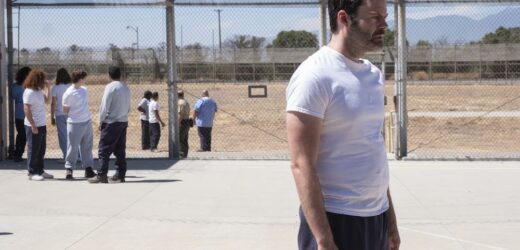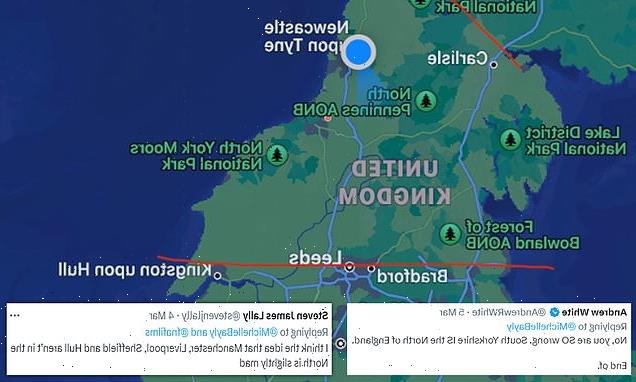In spring 2020, during the earliest phase of the pandemic, production on Season 3 of “Barry” was shut down before it could even begin. But co-creators Bill Hader and Alec Berg — along with the writing staff of the dark HBO comedy — would soon put that time to good use. They wrote the fourth season of “Barry,” and then went back and rewrote the show’s third, which still hadn’t started filming.
As Hader and Berg wrote Season 4, they started to realize that “a very clear ending presented itself,” Hader told Variety in an interview last week. On April 16, the eight-episode final season of “Barry” will premiere — and Variety can exclusively reveal that date, as well as unveil its first teaser and first look.
https://youtube.com/watch?v=xW7Ld5iwRnQ%3Fversion%3D3%26%23038%3Brel%3D1%26%23038%3Bshowsearch%3D0%26%23038%3Bshowinfo%3D1%26%23038%3Biv_load_policy%3D1%26%23038%3Bfs%3D1%26%23038%3Bhl%3Den-US%26%23038%3Bautohide%3D2%26%23038%3Bwmode%3Dtransparent
The teaser shows the aftermath of the Season 3 finale, with Hader as Barry Berkman — an Ohioan hitman who comes to Los Angeles for a job, but ends up seeking redemption after finding community in an acting class — now in prison, thanks to his former acting teacher Gene Cousineau (Henry Winkler).
Even after the idea for the ending of “Barry” had come to Hader, he said during that time he’d find himself thinking, “but we have such a good time doing it!” Hader, the “Barry” creative team and HBO certainly have plenty of reasons to keep the show going. Season 3 of “Barry” premiered to rave reviews in April of last year, and overall, the show has been nominated for 44 Emmys, winning nine. Hader has won two of those Emmys for playing the title character — and just last month picked up another DGA award for directing the Season 3 episode “710N.”
Hader didn’t want to say a premature goodbye to a show that had formed its own community since HBO first picked it up in 2016 (“Barry” premiered on March 25, 2018). “We didn’t want to admit it to ourselves, you know what I mean?” Hader said.
And so, according to Hader, it wasn’t until Season 4 began filming last summer that he broke the news to Amy Gravitt, who as the executive vice president of HBO comedy programming had worked with him on “Barry” since its inception. “I feel like the story naturally ends after Season 4,” he remembered telling her — imitating Gravitt’s anguished sigh at hearing the news.
Gravitt said she trusts Hader’s judgment implicitly, nonetheless. “Every decision that he’s made about the story, or the jump between seasons, has made sense — so I had to go with his gut on that,” she said. “Obviously, now that we’re here, we’re feeling sentimental about it. But it really does feel like it’s the right time to finish the show.”
In the teaser, Barry, who was arrested in the finale of the third season, is incarcerated. Set to the song “After the Lights Go Out” by the Walker Brothers, the clip opens with Barry in prison, making a series of phone calls. His former friend and mentor Cousineau says meaningfully, “Hey Barry — I got you.” Then, seemingly hallucinating in the prison yard, Barry imagines watching ex-girlfriend Sally (Sarah Goldberg), Gene and his hitman handler Monroe Fuches (Stephen Root) walking right on by. As the teaser continues and gathers momentum, we see a worried-looking Sally as she steps onto a set, Barry hitting his head against a wall, Noho Hank (Anthony Carrigan) walking with purpose, Jim Moss (Robert Wisdom) approaching Gene in his dressing room, Fuches smirking — and Gene, looking scared, holding a gun.
With a beaten-up face, Barry growls into the phone, “So help me God, if I get out of here, I’m coming for you.” Is he talking to Hank? To Jim? To Gene? Fuches? We’ll begin to figure the answer out on April 16.
Gravitt was loathe to tease any spoilers, but would say of how “Barry” ends, “I’ve been using the word ‘satisfying’ a lot.”
In his only interview announcing the final season, Hader talked about what went into his decision to end “Barry,” why he directed all of Season 4, whether Barry Berkman can ever be redeemed — and why the show has been a “life-changing experience.”
You just told me “a very clear ending presented itself” to wrap up the story of “Barry.” So you and the writers headed toward that?
Yeah! It was very much in the writing and the storytelling. I mean, a lot of people after last season were like, “Why are you doing another season? It should have just ended.”
But to me, there are still so many questions with the other characters, and with Barry — and there’s so many things unsaid. What happens in Season 4 is structurally radical in some ways, but it made sense for what I think the characters needed to go through, and what I think the whole show is always kind of headed towards.
You realize, well, we could pad a lot of stuff, and just make story. But if we’re going forward, it ends in Season 4.
You said that you went back and rewrote Season 3 — Season 3 was pretty dark. What were you rewriting?
Well, Season 3 was always pretty dark. Actually, in some parts it was darker, and we cut it back! I think naturally the show just gets darker by virtue of what’s happening with the characters, and people knowing this thing that Barry’s kept hidden. This whole show has been about him trying to better himself, and change himself. And I think a lot of people — maybe us included — thought, “Oh, that gonna happen.” And then as you write it, you go, “Oh, no, that’s never — I don’t know if that’s gonna happen!”
Season 3 was solidifying that, and then setting up stuff that we wanted to happen in Season 4. So 3 and 4 to us felt like one big season — those 16 episodes were all kind of conceived together. And then, like I said, there’s something that happens in 4 that is kind of strange, though thematically it makes a lot of sense.
Will that be toward the beginning of Season 4?
You’ll notice it! It’s fun. It was a lot of fun, but it was also incredibly bittersweet.
The last two episodes, while we were shooting, were not fun. It was very sad.
You’ve directed every episode of Season 4. What was that like? And why would you do that to yourself?
As Season 1 started, I was always wanting to direct, and then as I was making first couple of episodes, people like Alec Berg and Liz Sarnoff, and some really great directors we had — like Maggie Carey and Hiro Murai, especially — were coming in, and I was learning a lot from them. As the show has progressed, I’ve gotten much more confident as a director and as a writer.
I’ve always kind of seen each season as a movie. Like each season is two movies, or one four-hour movie. It’s like a giant story told in four parts. Basically, what happened during Season 3, [executive producer] Aida Rogers was like, “You have all this in your head, and anybody else directing it — you’re driving them crazy.” I kept going, “Hey, man, I think that should be over here, and I think it should be this and this.” And luckily, Alec was directing the other episodes in Season 3.
So they were like, “I think you should just direct them all in Season 4. It will make things easier for everybody.” Because I’ve been champing at the bit to do this for so long. But it was exhausting. It was very exhausting.
Season 3 ended with Barry being arrested, at long last. Can you give any hints about where we’ll find him at the beginning of the season?
He’s in prison.
Jail or prison?
He’s in prison, I can say that because I think that’s pretty evident from our marketing materials. But that’s all I can say.
You alluded to this question earlier, but can there be redemption for Barry Berkman, or are we past that possibility?
I mean, we asked ourselves that up to the ending. Me and the writers, we would talk about it. I don’t know. I’m interested to see what people think about how it concludes. I don’t think he’s given up.
What are some series finales you’ve admired over the years, and did any of them help inform how you wanted to end “Barry”?
To be honest, I don’t watch a whole lot of television. But I get excited by good endings to books — things that have a really satisfying ending.
I’ve never seen it in terms of a TV show, I guess — even though it is a TV show. Even when we’re cutting right now, I don’t even think I’ve ever referred to it as the “series finale” when we’re working on the last episode. It’s just the end of the story, you know what I mean?
What was that last episode like to film?
Well, it’s ongoing — we’re doing reshoots! It isn’t a bad thing. You get into the edit bay, and you start seeing things. And HBO is nice enough to say yes when I say, “Can I please go out and grab this?”
You can write something, and it feels so clear to you. And then you shoot it, and it feels so clear. And then you edit it together, and it feels so muddy. A lot of times when we go back and reshoot stuff, it’s for clarity. It has so many twists and turns, and people’s allegiances change, and things like that, that it can be confusing.
Given that, do you find yourself having a delayed catharsis, or is it just an ongoing goodbye?
It’s kind of an ongoing goodbye right now. I mean, we’re all friends. You know, it’s weird: Like, you say goodbye, and then people come in to do ADR. I’m gonna see Stephen and Henry tomorrow at ADR. And like I said, we’re doing reshoots.
But the very, very last day of principal photography — yeah, it was incredibly sad. It’s been an amazing, life-changing experience for me, personally. So I was happy I was able to tell the crew that, these people who worked for so many years. To be able to thank them was very important to me.
When you picture yourself finishing the series, sending it to HBO and putting it to bed, what do you think you’ll be thinking about in terms of what playing Barry and creating the show have done for you?
I don’t know. That’s a thing that will probably hit me years from now. It’s like when I left “Saturday Night Live,” I was so in a daze, and I just had two young kids, a young family, and we moved to Los Angeles. It wasn’t until I was doing “Barry” that I go, “Man, ‘SNL’ really taught me a lot of how to do this stuff.” Because you have to produce your own sketches there, and that gave me a lot of confidence as a performer. Or, like, working with people — or taking an idea on paper and working with a bunch of artists and technicians to see it come together. It’s usually the next project, whatever that is, that I’ll go, “Oh, my God, you know, ‘Barry’ really affected me in this way.”
Right now, it’s like, “Oh, the story ended.” I just wanted to tell this story, and the story’s done. I did say this to Hiro Murai, though, and he was like, “I’m telling you, when the last episode airs, it’s really sad.” Because when the last episode of “Atlanta” aired, he was like, “Oh, man, I’m really sad!”
So I have that to look forward to.

This interview has been edited and condensed.
Read More About:
Source: Read Full Article


